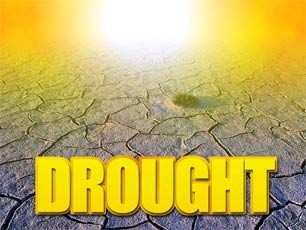The Independent-Mail of Anderson reported Sunday that the U.S. Army Corps of Engineers says that the current lake level is 639.58 above mean sea level. That is lower than the previous record low of 642.4 feet set during the drought of 1981.
Steve Wilson, manager of the Anderson Regional Joint Water System, said water cannot be taken from Hartwell Lake through the only remaining submerged intake pipe for the water system if water levels drop to 620 feet. At the current rate of water usage, Wilson said that could happen late next summer or early fall.
``I would estimate that we have maybe 300 days of available water left in the lake. No one knows for sure,'' Wilson said. ``Conservation methods have been successful and have increased the life of the existing water supply, but more needs to be done to insure the continued supply of clean, usable water from the lake.''
City officials in the towns of Central, Clemson and Pendleton said their citizens are conserving water and meeting the 20 percent reduction levels required by drought management regulations. The question now is whether that is enough conservation.
Currently, the Corps releases 3,600 cubic feet of water per second to supply electrical generation needs and keep federally mandated flows moving downstream, according to the Corps Web site. Virgil Hobbs, Hartwell Project Operations Manager, said the Corps is working on an environmental assessment that could cut releases to 3,100 cubic feet per second by Nov. 22. That could mean approximately 323 million more gallons per day would be retained in the lake, Hobbs said.
If it does not rain and the lake continues to drop, there is still what is known as the inactive storage, Hobbs said. This is the deep-water portion of the lake that could be tapped in a worst case scenario.
``If we reach that point next year then the states of Georgia and South Carolina would have to agree to access the inactive storage, since this is a shared water resource,'' Hobbs said.
``Water would become more expensive and we could lose the lake, but water needs could continue to be met for some time with pumps and pipes. If we reach this point all releases will have stopped and flow in the Upper Savannah River Basin would be adversely affected. Power generation at the dam would most likely not be possible and economic impacts would occur.''
Hobbs said use of deep-water resources would be uncharted waters.
``We can only hope that God will be looking out for us and provide some much-needed rain,'' he said.

http://accesswdun.com/article/2008/11/215091
